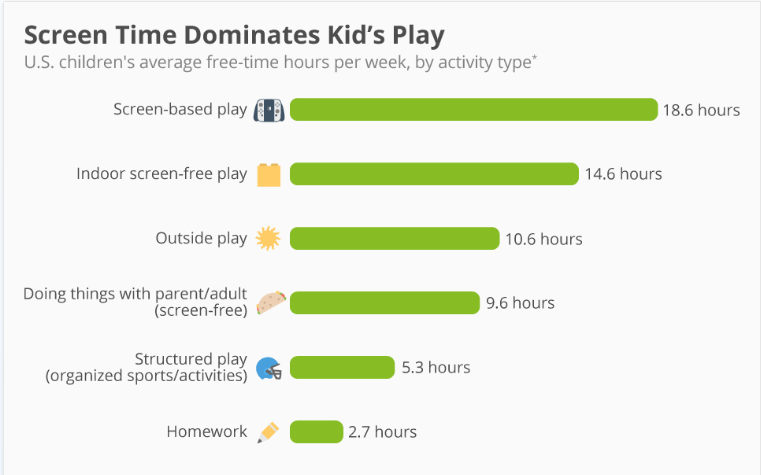Screen Time for Kids: Surprising and Disturbing Facts (Article)

Are you a parent and want to do a good upbringing of your children? Moreover, if you are worried about your children who spend too much time on screen and have developed a rebellious attitude, then don't worry. This article will cover suggestions to make a favorable situation. But before that, you need to know a little science related to the consequences of excessive screen time for kids.
Children's brains develop until the adolescent age but the development occurs very fast in the first 7 years.
Physical activities help to develop their brains a lot especially cognition and language areas. Excessive screen time ruin that development. So, if you don't let your child go outside then don't do that. Furthermore, if he doesn't show interest himself in such activities, talk to your child, and analyze the problem.
A survey conducted on some children belonging to the U.S. revealed surprising facts. They spend an average screen time of 18.6 hours per week.

This article will explore different undesirable effects of screens usage on our children, how to use these gadgets productively, and guidelines to minimize the effects associated with their usage.
Harmful Effects of Screen time on Children
- A recent study shows that signs of anxiety and depression are far more common in individuals who used gadgets in their childhood a lot. Around 16% to 55% area of the brain can be affected.

2. A team of specialists gathered a group of children to conduct a test. The first group contains those who use devices frequently while the other ones spend time reading books. After that, the scanning of both sets of children was carried out. Results showed that the children who read books, their different brain areas were in a better collaboration that deals with language and cognition.
3. Moreover, the relation of screens usage with psychological behaviors is studied. It gives information that teenagers who used to play video games and watching cartoons in their childhood desire and plan to commit suicide most often.
After coming to know these facts, you would probably be wondering that what can be the alternative ways of protecting our kids from this menace. So, we are providing you with the best practices that you can adopt to achieve healthier results.
How to make Screen Time productive?
- Filter out unhygienic content. Check out the game thoroughly before letting your child play it. Look if there is anything inappropriate.
- Provide kids with games that are interactive. Not the ones which are static like shows and cartoon videos.
- Supervise children when they are playing a game. Train him in a way that he/she first asks from you and then use it.
- Ask about the feelings of your child after he/she has done playing. It is an opportunity to make your child open up with you more.
How much screen time is too much?
The American Academy of Pediatrics has provided some screen time recommendations by age. It involves limiting screen time for kids.
- Do not allow children to use gadgets at any cost if they are below 1.5 years of age. However, video calls can prove beneficial.
- From 18 months to 2 years of age, they can enjoy for a few minutes on screen. The following applications are specially designed for kids.
- During their ages from 2 to 5 years, don’t let them use the screen for more than 1 hour.
- From the age of 6 and onwards, involve your kids in healthy activities and don’t let them sit idle. But if they use the screen, provide them with limited games only.
The American Academy of Pediatrics has made an application known as the Family Media Use Plan. You can use this tool to structure your family time in a balanced way.
Conclusion
The whole article covers strategies of how to reduce screen time for kids. These guidelines are not necessarily equal for all children so everyone can have different requirements. It is very essential that you train your children regarding the limited use of this technology.

Comments
Post a Comment